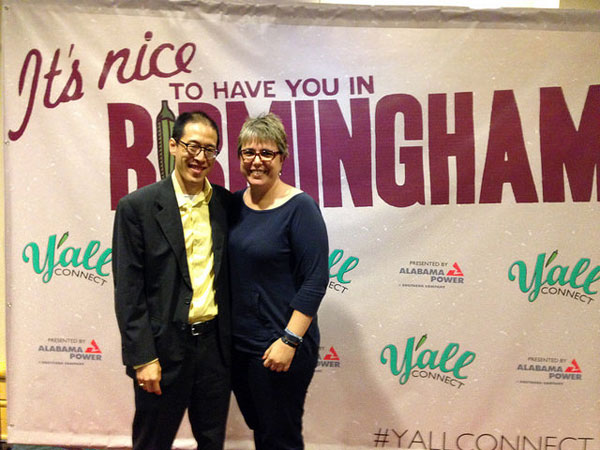Promote an event with a real Web presence

We are surrounded by happenings. Networking events, workshops, seminars, grand openings, lunch and learns, conferences, open houses, product launches and more.
I have events on the brain after having wrapped up our third annual Y’all Connect Presented by Alabama Power. And I’ve been hitting a lot of business get-togethers over the last few months to promote the conference.
Great events with great marketing face tons of competition for people’s attention and time. Great events with poor marketing have the same fight. And great events with zero marketing … same refrain.
It doesn’t have to be this way. Why cede potential attendees to other lesser events, or worse, to their default activity (wasting time at the office, or sitting at home)?
Companies and organizations with perfectly nice websites often post their events online. Just not on their websites. It’s like renting a billboard a thousand miles away, or airing commercials in Latin.
Yes, an organizer might want to cross-post a meeting to a Facebook event page, or sell tickets through Eventbrite. But to serve attendees effectively, the event must be easy to find.
Not every attendee uses Facebook, nor will Google her way to an Eventbrite listing. The expectation is that the host will have the event posted prominently on the company website.
It’s OK if the organizer has to send customers to a third-party site for ticket purchases (though Eventbrite allows embedding of its ticket window). But it should begin with the company’s site. And it should include the basic information.
Having events on the website makes for easier, better marketing. An organizer can send out a link in social media and email newsletters. She can even have a short URL to include on flyers and Instagram pics.
Even those conscientious enough to advertise events on their sites do so for a short time.
For some unknown reason, companies often wipe out the previous event for the next upcoming event, usually on a static page reserved for events and meetings. Do customers want to buy from organizations that appear to have held only one meeting ever?
The simple solution is to create a unique event page for each new meeting, and use the main events page to link to one or more upcoming or past events. Context shows the undecided attendee the rich history of topics and speakers from previous sessions.
That’s a huge missed opportunity. It takes the same amount of effort to keep all those archived events as it does to delete them forever.
But the biggest missed opportunity in having an event on a host site is bringing people back for future events. Many people who see the event can’t attend because of a scheduling conflict. They will never revisit the site again, unless the organizer takes one last step.
Asking visitors to sign up for the mailing list. “Receive free email alerts for our upcoming meetings!”
Selling tickets to past customers saves time and money on marketing. It builds a fan base and a customer database. It makes perfect sense.
Most event organizers aren’t doing it. And it’s sending their would-be audience to other events in droves.
Having a successful event starts with how it’s presented from the beginning. A great organizer should show off all her events on her site for maximum marketing power and the best customer service.
•
Also:
- Better event marketing: the basics
- Make your events winners through consistency
- Notes from a new conference organizer
• • •
Want to know the events where I’ll be speaking?
It’s all in my free newsletter …









Trackbacks